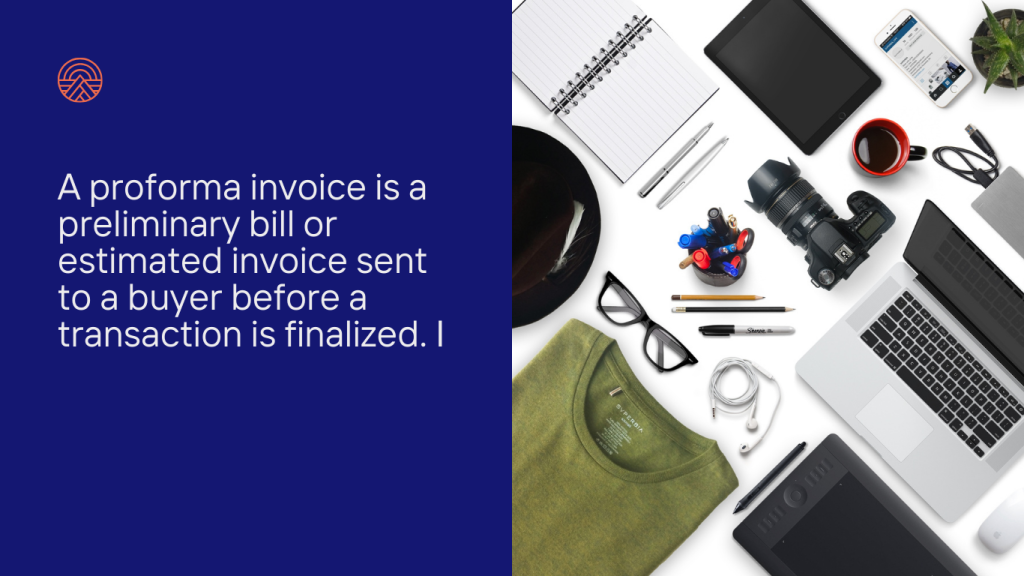A proforma invoice is a preliminary bill sent to a buyer before the final sale. It lists the products or transaction details, services, quantities, prices, and other tax and discount details—but unlike a regular invoice, it’s not an official request for payment. Instead, it acts as a quote or an agreement draft to help both the business and client confirm terms before processing payment.
Why Use a Proforma Invoice?

- Estimate Costs: Buyers can review pricing, taxes, and shipping fees before committing.
- Customs & Import Requirements: often used in international transactions to declare goods before shipment.
- Secure Approvals From Clients: Helps buyers arrange payments, get bank approvals, or apply for import licenses.
- Avoid Payment Misunderstandings: Outlines what’s being sold, preventing disputes later.
Key Differences from a Commercial Invoice
- Not legally binding—just an estimate invoice, not a final bill.
- No payment demand: used for confirmation, not payment collection.
- Flexible adjustments: The user can change before the final invoice is issued.
Businesses often use proforma invoices for international transactions, bulk purchases, or when a buyer needs approval from clients. It’s a helpful tool to keep transactions smooth, transparent and easy to track the final payment from the clients.
Need a simple template? check here